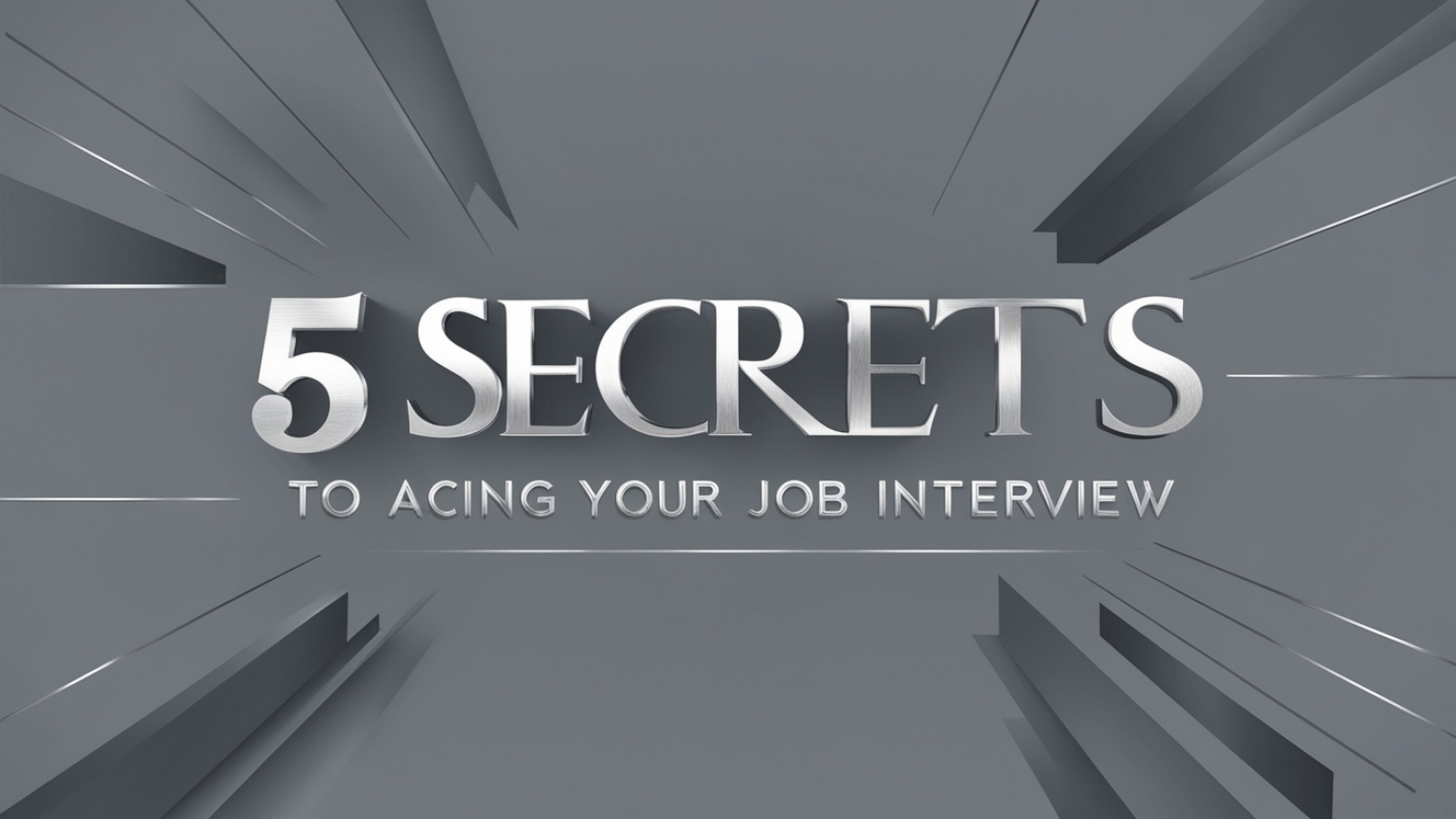Job interviews can be a nerve-wracking experience, but with the right preparation and mindset, you can turn them into opportunities to shine. Acing a job interview involves more than just answering questions; it’s about making a lasting impression and demonstrating your fit for the role. Here are five secrets to help you ace your job interview.
1. Thoroughly Research the Company
a. Understand the Company Culture
Before your interview, take the time to research the company’s culture, values, and mission. Understanding these aspects will help you tailor your responses to align with the company’s ethos.
Example: If the company values innovation, be prepared to discuss instances where you contributed innovative solutions in your previous roles.
b. Know the Products and Services
Familiarize yourself with the company’s products and services. This knowledge demonstrates your genuine interest in the company and helps you articulate how your skills and experiences are relevant.
Example: Mention specific products or services during the interview and discuss how you could contribute to their improvement or marketing.
c. Research the Interviewers
If possible, find out who will be interviewing you and learn about their roles within the company. This can help you build rapport and tailor your responses to their specific interests.
Example: If your interviewer is the head of marketing, emphasize your marketing experience and achievements.
2. Practice Common Interview Questions
a. Prepare Your Responses
Anticipate common interview questions and prepare thoughtful responses. Practice answering questions about your experience, skills, strengths, weaknesses, and why you want the job.
Example: For the question “Tell me about yourself,” prepare a concise summary that highlights your professional background, key achievements, and how your skills align with the role.
b. Use the STAR Method
For behavioral questions, use the STAR method (Situation, Task, Action, Result) to structure your answers. This approach helps you provide clear and compelling examples of your past experiences.
Example: If asked about a time you overcame a challenge, describe the Situation, the Task you needed to accomplish, the Actions you took, and the Result of your efforts.
c. Practice with Mock Interviews
Conduct mock interviews with a friend, family member, or career coach. This practice can help you become more comfortable with the interview format and receive valuable feedback.
Example: Record your mock interviews to review your body language, tone, and content, and make improvements as needed.
3. Dress for Success
a. Choose Professional Attire
Select attire that is professional and appropriate for the company’s dress code. Dressing well shows respect for the interview process and boosts your confidence.
Example: For a corporate job, opt for a suit or business dress. For a tech startup, business casual attire may be more appropriate.
b. Pay Attention to Details
Ensure your clothing is clean, pressed, and fits well. Pay attention to grooming and personal hygiene.
Example: Shine your shoes, avoid excessive jewelry, and ensure your hair is neatly styled.
c. Consider the Company’s Culture
While it’s important to dress professionally, consider the company’s culture and dress code. Aim to match your attire to the level of formality typical in the company.
Example: If the company has a relaxed dress code, wearing a blazer and slacks may be more appropriate than a full suit.
4. Showcase Your Skills and Achievements
a. Highlight Relevant Experience
Focus on discussing your most relevant experiences and achievements. Use specific examples to demonstrate how your skills and accomplishments make you a great fit for the role.
Example: If the job requires project management skills, discuss a successful project you led, detailing your responsibilities, the challenges you faced, and the positive outcomes.
b. Quantify Your Achievements
Whenever possible, quantify your achievements to provide concrete evidence of your capabilities.
Example: Instead of saying, “I improved sales,” say, “I increased sales by 20% in six months by implementing a new marketing strategy.”
c. Bring a Portfolio
If applicable, bring a portfolio of your work to the interview. This can include examples of projects, reports, presentations, or any relevant materials that showcase your skills.
Example: A graphic designer might bring a portfolio of design projects, while a marketer might bring case studies of successful campaigns.
5. Follow Up Effectively
a. Send a Thank-You Note
After the interview, send a thank-you note to each interviewer. This gesture shows appreciation for the opportunity and reinforces your interest in the position.
Example: In your thank-you note, mention specific topics discussed during the interview and reiterate how your skills and experiences make you a strong candidate.
b. Reflect on the Interview
Take some time to reflect on the interview. Consider what went well and what could be improved for future interviews.
Example: Make notes about questions that were challenging and think about how you can better prepare for similar questions in the future.
c. Stay Patient and Positive
The interview process can take time, so stay patient and positive. Continue to apply for other positions and prepare for additional interviews.
Example: Follow up politely if you haven’t heard back within the expected time frame, but avoid being overly persistent.
Conclusion
Acing a job interview requires thorough preparation, effective communication, and a professional demeanor. By researching the company, practicing common interview questions, dressing for success, showcasing your skills and achievements, and following up effectively, you can increase your chances of making a positive impression and securing the job. Implement these strategies to confidently navigate your next job interview and move closer to your career goals.




Add a Comment